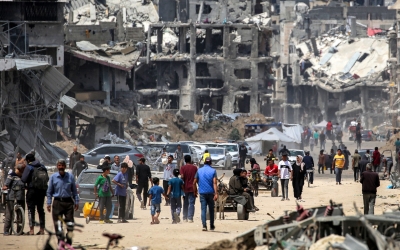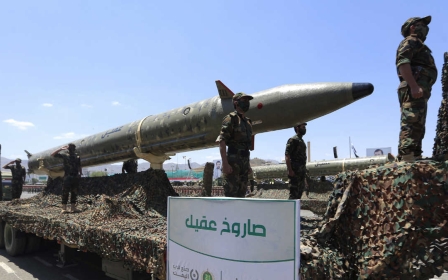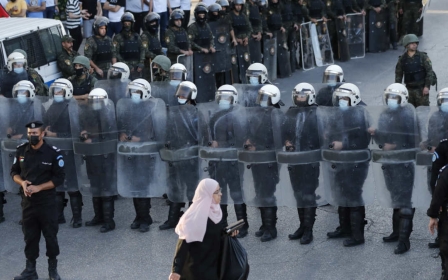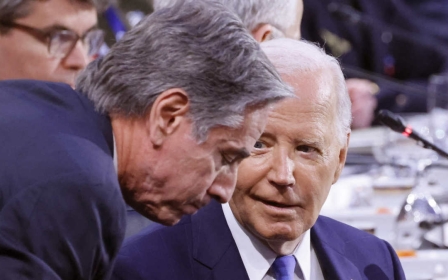UAE, Israel and US held secret meeting to discuss post-war Gaza plans: Report
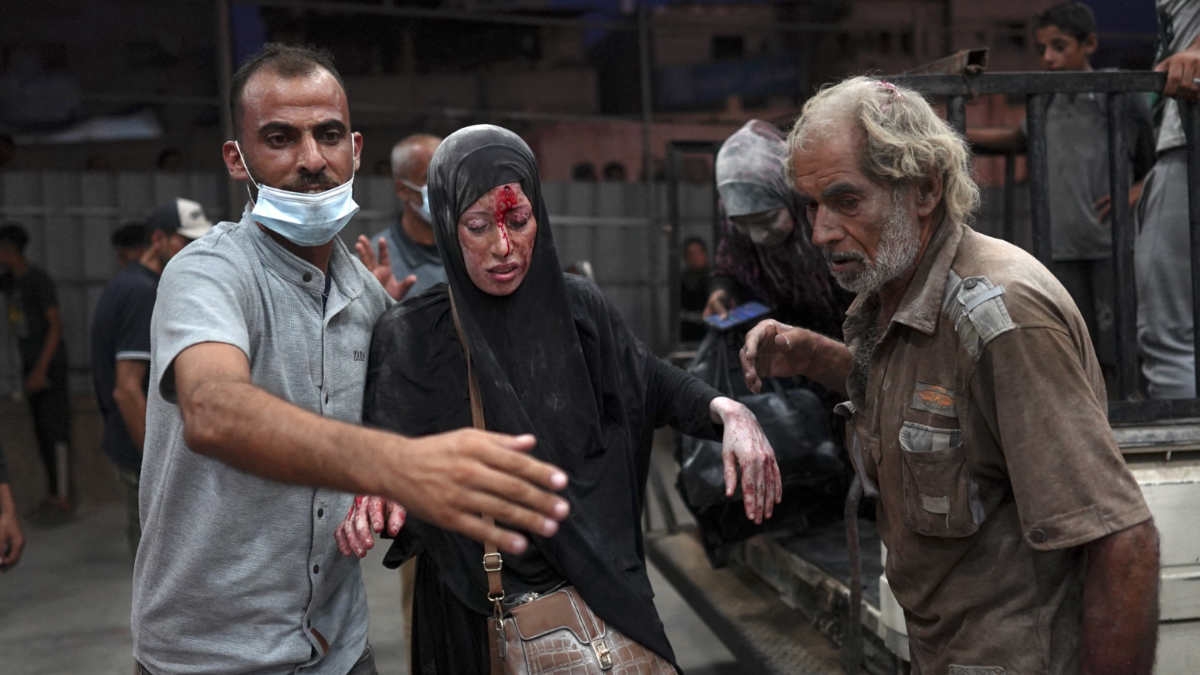
The UAE, US and Israel met in Abu Dhabi on Thursday to discuss post-war plans for Gaza, a day after a senior Emirati diplomat signalled that the UAE was prepared to send peacekeeping forces to the besieged enclave.
The meeting was hosted by Foreign Minister Abdullah bin Zayed Al Nahyan and attended by the White House’s top Middle East official, Brett McGurk, State Department counsellor Tom Sullivan, and Israeli Minister of Strategic Affairs Ron Dermer, according to Axios.
The meeting came on the heels of an opinion article published in the Financial Times that backed the deployment of a temporary international force in Gaza to provide “law and order”.
Lana Nusseibeh, the UAE’s former ambassador to the United Nations, now an assistant minister for political affairs in the UAE, said an international force could be sent to Gaza at the invitation of the Palestinian Authority as part of efforts to achieve a two-state solution to the Israel-Palestine conflict.
It was not immediately clear why the UAE decided to lay out its vision for the Gaza Strip a day before the previously undisclosed meeting with senior US and Israeli officials.
New MEE newsletter: Jerusalem Dispatch
Sign up to get the latest insights and analysis on Israel-Palestine, alongside Turkey Unpacked and other MEE newsletters
But at least some of Nusseibeh’s pre-conditions for a peacekeeping force in Gaza appear to contradict the stated positions of Israeli Prime Minister Benjamin Netanyahu’s government.
Nusseibeh, who hails from a prominent Jerusalem family, said an international force would not bring stability to Gaza unless Israel lifts its blockade of the Gaza Strip and ends settlement construction in the occupied West Bank.
Her call for the international force to be a stepping stone towards a two-state solution also directly challenges the Israeli Knesset, which overwhelmingly voted to reject a Palestinian state last week.
Gulf monarchies discuss Gaza force
Analysts are sceptical about whether the US can recruit Gulf states to provide security and reconstruction in the Gaza Strip, particularly as Israel continues to batter the enclave and talks on a ceasefire stall. However, privately, US and Arab officials who have spoken to MEE suggest that some tentative progress has been made.
The White House and Department of Defense did not respond to MEE’s request for comment by the time of publication.
The US is working on crafting a plan for post-war Gaza security that would see a US-backed mission led out of Cairo, Egypt. Last month, Middle East Eye reported that the US was weighing plans to shift the Palestinian Authority’s security forces into Centcom’s area of responsibility. Israel was placed under Centcom's area of responsibility in 2021.
A senior US defence official previously told MEE that Bahrain told the US it would be willing to deploy peacekeepers to the Gaza Strip. Manama’s police and security forces are staffed by many Pakistanis and Jordanians of Palestinian descent.
The FT's opinion article suggests that the UAE no longer sees discussing its participation in a temporary international force as a private matter.
That represents a sharp turnaround from May when the UAE issued a statement pushing back against Israeli Prime Minister Benjamin Netanyahu’s claim that Israel had made progress with the Gulf State in taking part in the administration of the Gaza Strip after the war.
Middle East Eye delivers independent and unrivalled coverage and analysis of the Middle East, North Africa and beyond. To learn more about republishing this content and the associated fees, please fill out this form. More about MEE can be found here.


